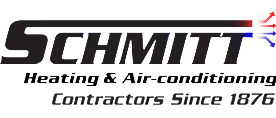The Link Between Home Heating and Indoor Humidity
As a resident of San Francisco, CA, navigating the cool, damp winters and dry, warm summers, it’s crucial to understand the intricate relationship between home heating and indoor humidity. This balance is not only essential for sustaining a comfortable and healthy living environment but also plays a significant role in energy efficiency and household expenses.
Why Indoor Humidity Matters for Your Home
San Francisco’s unique climate, characterized by its mild, wet winters and dry summers, demands a nuanced approach to managing indoor air quality. Indoor humidity plays a pivotal role in this process, directly impacting how warm or cool our homes feel. Moist air retains heat more effectively than dry air, which is why a properly humidified home requires less heating. The key is maintaining a humidity level between 40-60%, as this range is optimal for comfort, health, and energy efficiency.
Achieving Comfort and Energy Savings Through Humidity Control
One of the lesser-known secrets to a comfortable and energy-efficient home lies in managing indoor humidity levels effectively. By aiming for an ideal humidity range, residents can actually feel warmer in the winter without cranking up the thermostat. This simple adjustment can lead to significant savings on energy bills, especially during cooler months when heating systems are in frequent use.
Smart Solutions for Humidity Management
Incorporating a whole-house humidifier into your heating system is a strategic move for maintaining optimal humidity levels. Not only does it enhance heating efficiency by making the air feel warmer, but it also prevents the discomfort and health issues associated with dry indoor air, such as skin irritation and respiratory problems. Conversely, during the damp summers, a whole-house dehumidifier works to extract excess moisture, keeping your home comfortably cool and further maximizing energy efficiency.
Health and Home Benefits
The benefits of proper humidity control extend beyond energy savings and comfort. By maintaining balanced humidity levels, you’re also safeguarding your family’s health—reducing the risk of respiratory issues and infections—and protecting your home from moisture-related damage to woodwork, furniture, and electronics.
Seasonal Tips for San Francisco Residents
For those living in the Bay Area, adapting your home’s humidity management with the changing seasons is crucial. During the breezy and cool winter months, using a humidifier can help counteract the drying effect of heating systems, making your living space feel cozier. As the climate shifts to warmer, drier summer days, utilizing dehumidification strategies becomes key in maintaining a comfortable and energy-efficient home.
Conclusion
Understanding the link between home heating and indoor humidity is essential for residents seeking to improve their home comfort, health, and energy efficiency. By strategically managing indoor humidity levels, you can enjoy a comfortable home environment year-round, while minimizing energy consumption and costs.
If you’re looking to optimize your home’s heating and humidity, Schmitt Heating & Air Conditioning is here to help. Our team of experts can advise on the best humidity control solutions tailored to the San Francisco climate. Give us a call at (415) 689-7849 or fill out our online form to get started. Let us enhance your home comfort and energy efficiency today!




